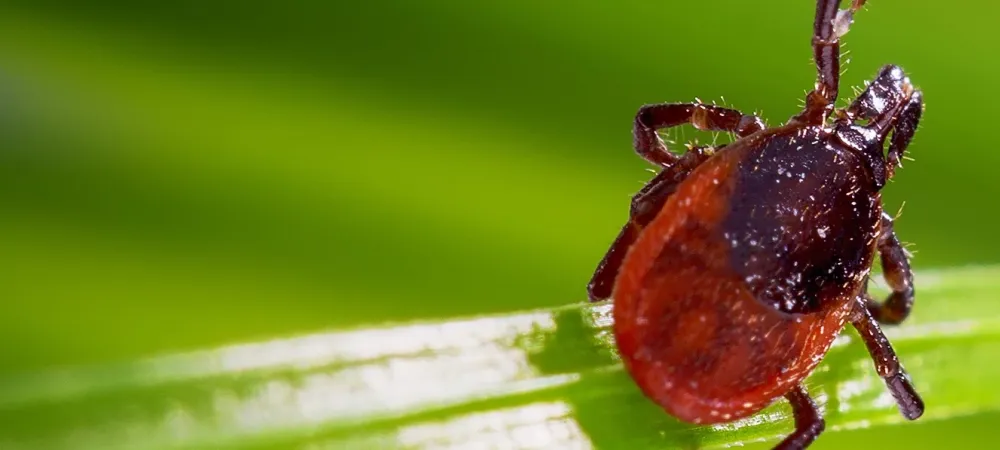2025 Tick and Mosquito Surge: What It Means for Your Backyard

A warm winter might seem like a welcome break—but for pest populations, it’s a green light to explode. Thanks to mild temperatures and a rainy spring, ticks and mosquitoes are surging across Maryland and Virginia this summer. If it feels like the bugs are biting earlier and more often, you're not imagining things.
Here's what’s driving the surge—and what you can do to protect your yard, your family, and your pets.
Why Are Ticks and Mosquitoes So Bad This Year?
Pest populations are directly influenced by the weather. This year’s warm winter allowed more insects to survive, and the wet spring provided ideal breeding conditions. Together, they created the perfect storm for a spike in biting pests.
What’s contributing:
- Fewer hard freezes: More ticks survived winter without interruption to their life cycles.
- Abundant rainfall: Mosquitoes rely on stagnant water to breed, and this spring gave them plenty.
- Earlier seasonal start: Bugs became active weeks ahead of normal timelines, extending the season.
This means more bugs, for a longer time, and increased chances of exposure to diseases like Lyme and West Nile virus.
Ticks
Most Common Species
- Blacklegged tick (deer tick): The primary vector of Lyme disease in the region. These ticks are small, dark, and most active in late spring through early fall.
- Lone Star tick: Known for its distinctive white dot on the back and its aggressive biting behavior. It’s spreading northward and linked to alpha-gal syndrome, a meat allergy triggered by bites.
- American dog tick: Frequently found on pets and in grassy areas. Can transmit Rocky Mountain spotted fever.
Where Ticks Are Usually Found
Ticks don’t jump or fly. Instead, they wait on vegetation and latch onto animals or people that brush past. You’ll most often find them in:
- Tall grass or weeds along yard edges
- Leaf litter and mulch beds
- Wooded paths and overgrown landscapes
- Pet bedding, kennels, or anywhere animals rest
- Shaded areas of the yard with high humidity
If your yard backs up to woods, is overgrown, or has lots of groundcover, it’s likely prime tick territory.
Mosquitoes
Most Common Species
- Culex mosquitoes: These dusk and nighttime biters are the main vector for West Nile virus in the region.
- Aedes albopictus (Asian tiger mosquito): A highly aggressive daytime biter that thrives in suburban neighborhoods. While rare, it’s capable of transmitting Zika and dengue in southern climates.
- Anopheles mosquitoes: Known carriers of malaria; local transmission is extremely rare but has occurred in other parts of the U.S. under specific conditions.
Where Mosquitoes Are Usually Found
Mosquitoes need just a small amount of standing water to breed—and they prefer warm, humid hiding spots during the day. Common areas include:
- Clogged gutters, rain barrels, and downspouts
- Birdbaths, flowerpots, and dog bowls left unattended
- Tarps, tires, buckets, and yard toys
- Low-lying lawn areas or puddles that hold water after rain
- Dense shrubs, ivy, and shaded deck areas where adults rest
Even clean, well-maintained yards can harbor mosquitoes if there’s unnoticed water buildup or dense vegetation.
How to Protect Your Yard and Family
Controlling ticks and mosquitoes takes a proactive approach. Here’s where to start:
1. Keep your yard tidy.
- Mow often, clear brush, and trim shrubs.
- Remove leaf piles and maintain open, sunlit lawn areas.
2. Eliminate standing water.
- Dump water from plant trays, birdbaths, and unused containers weekly.
- Repair drainage issues and unclog gutters.
3. Perform tick checks and use repellents.
- After being outdoors, check skin, clothing, and pets for ticks.
- Use EPA-approved repellents and consider long sleeves in wooded areas.
4. Invest in professional treatments.
- We apply mosquito control products to shrubs, shaded areas, and lawn perimeters.
- Our flea and tick programs focus on grass, shaded zones, and pet areas.
- Monthly or seasonal plans are available, with targeted service from May through September.
Get Ahead of the Surge
The rise in ticks and mosquitoes isn’t letting up anytime soon, but you can still enjoy your backyard without being their next target. Taking a few key steps now can reduce risk and keep your property more comfortable and safer for everyone.
If you're noticing an uptick in tick or mosquito activity on your property, it could be time to contact a professional. The team here at Guardian Termite & Pest Control offers mosquito control and tick control services that will help drastically reduce populations on your property, leaving you to enjoy your yard again. Contact our team today to tell us more about your issue, and take the first step toward your service!
